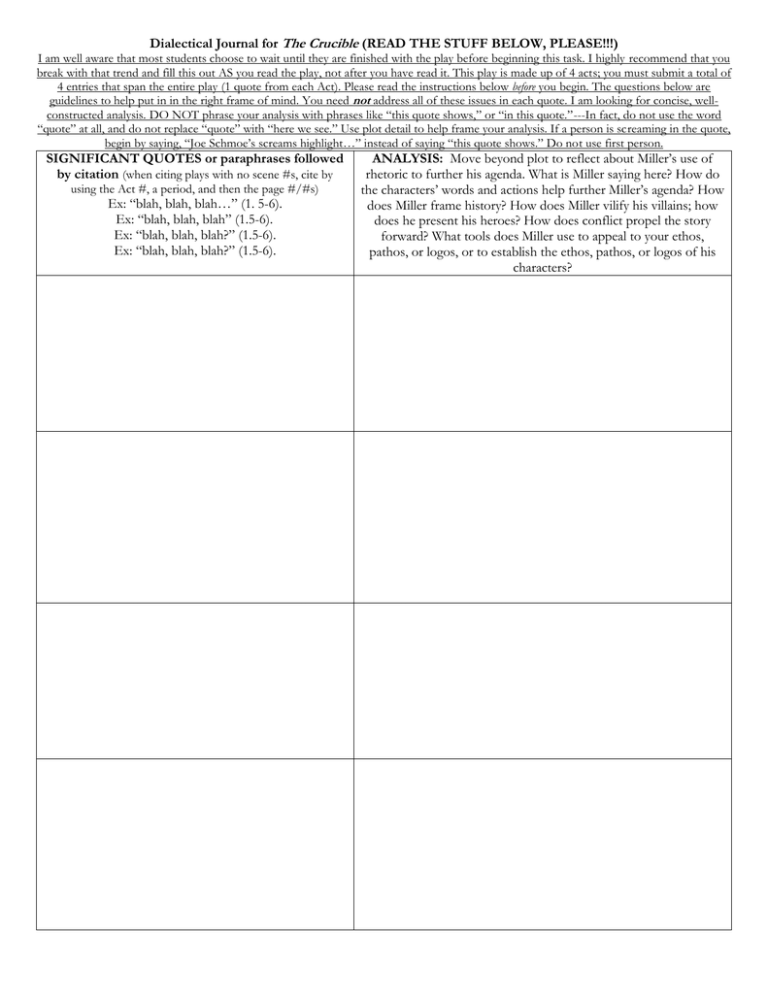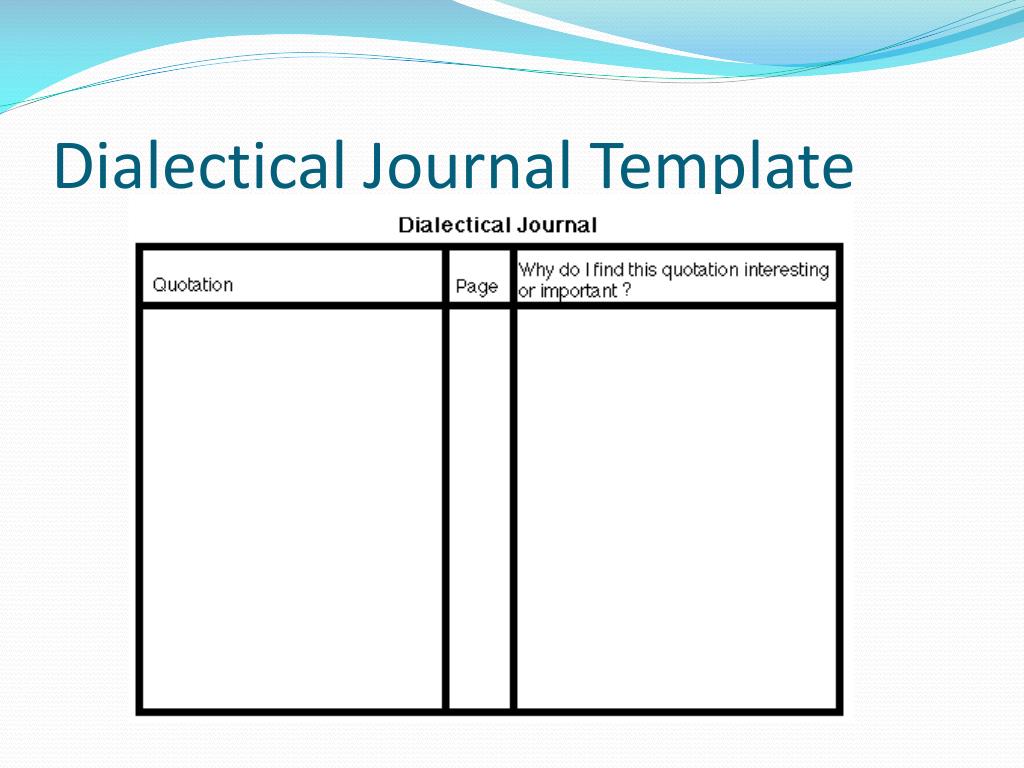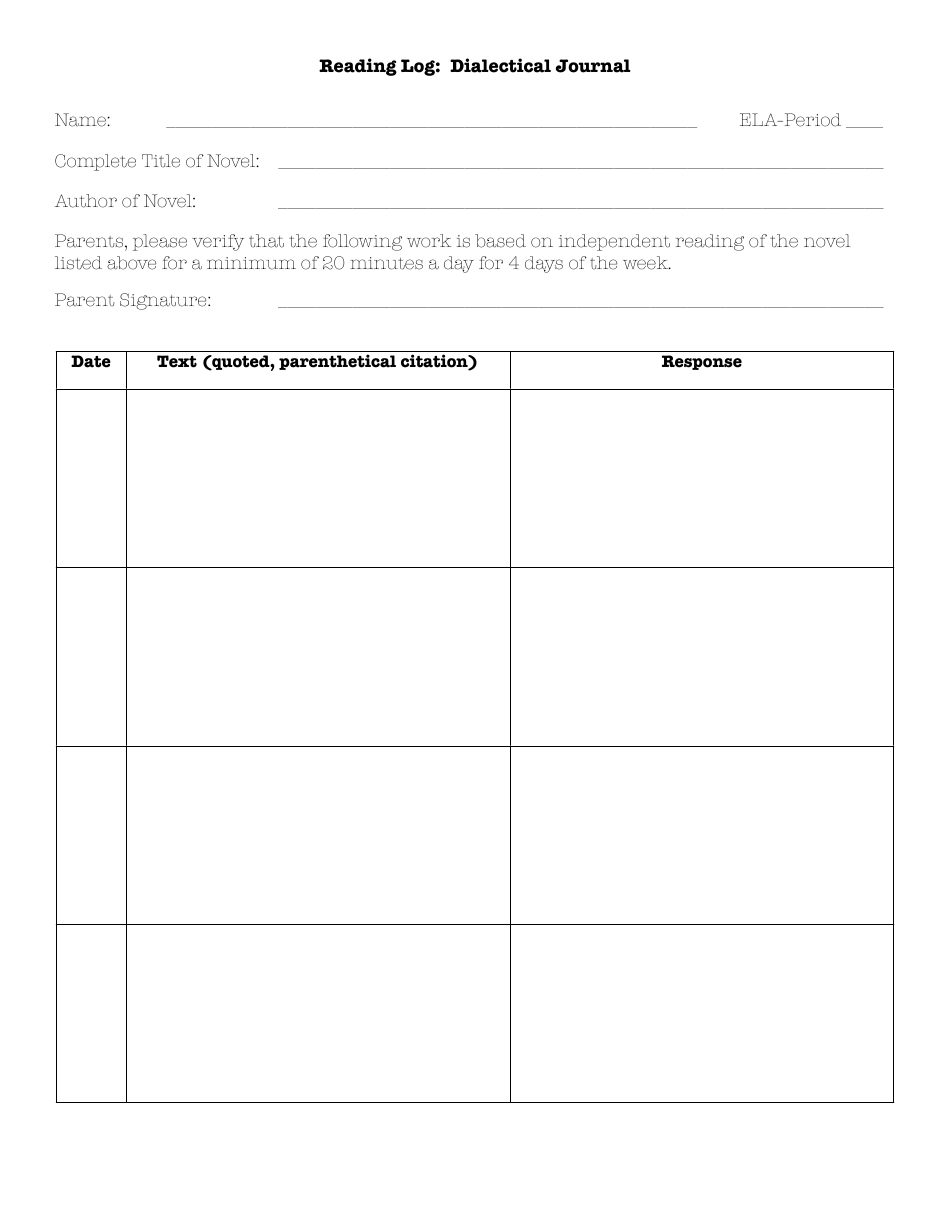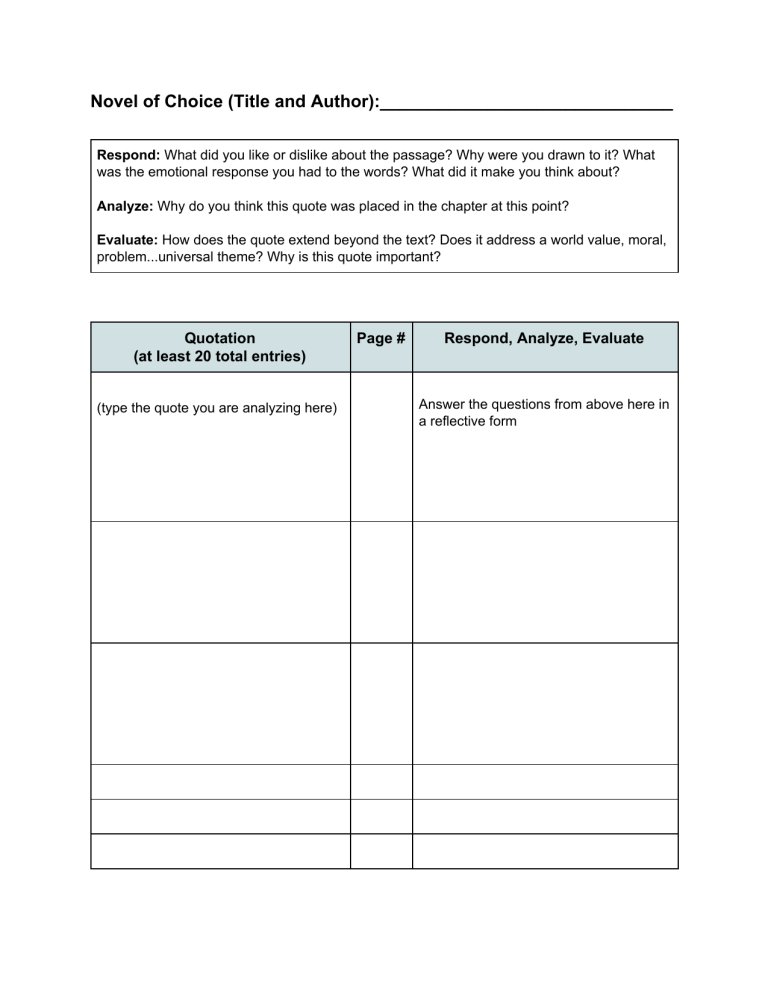The process is meant to help you develop a beter understanding of the texts we read. Web the sample dialectical journal on this page is one student’s work while reading hatchet by gary paulsen. It helps readers engage with the text by promoting critical thinking, making connections, and fostering dialogue between the reader and the author's ideas. What is a dialectical journal? The term “dialectic” means “the art or practice of arriving at the truth by using conversation involving question and answer.”.
You will use a double‐entry form (see dialectical journal entry format) to examine details of a passage and synthesize your understanding of the text. Improve your reading comprehension and critical thinking skills with a dialectical journal. It is another form of highlighting/annotating text and should be used to think about, digest, summarize, question, clarify, critique, and remember what is read. Includes scaffolded sentence starters to support student needs. Ideally, a dialectical journal should include pages and pages of entries, as it is an ongoing “logical discussion of ideas and opinions” as.
It helps readers engage with the text by promoting critical thinking, making connections, and fostering dialogue between the reader and the author's ideas. Includes scaffolded sentence starters to support student needs. Dialectical journals are a great assignment if you want students to stop and think about what they are reading. Learn how to identify important passages, make connections, and ask meaningful questions. A sample template is provided.
You will use a double‐entry form (see dialectical journal entry format) to examine details of a passage and synthesize your understanding of the text. Outliers by malcolm gladwell (<< change to your book/author) Web a dialectical journal is a written conversation with yourself about a piece of literature that encourages the habit of reflective questioning. It is another form of highlighting/annotating text and should be used to think about, digest, summarize, question, clarify, critique, and remember what is read. Improve your reading comprehension and critical thinking skills with a dialectical journal. Web the dialectical journal is a way for you to explore your own thoughts and feelings in response to assigned literature. According to the new oxford american dictionary, “dialectical” means “relating to the logical discussion of ideas and opinions.”. Web learn the definition of a dialectical journal, and understand who uses it and what its purpose is. Web this lesson will explain the format of a dialectical journal and how students can use one while reading to increase understanding. Web this lesson presents several different types of dialectical journals, ranging from journals in which students ask questions about the text to journals that target thematic meaning. Ideally, a dialectical journal should include pages and pages of entries, as it is an ongoing “logical discussion of ideas and opinions” as. The term “dialectic” means “the art or practice of arriving at the truth by using conversation involving question and answer.” think of your dialectical journal as a series of conversations with the texts we read during this course. Web to help students write more analytical dialectical journals, i've created this free dialectical journal template. Easy to assign digitally or print. Web since dialectic journals naturally encourage students to focus deeply on reading and rereading, they are a perfect strategy to guide students in doing close reading.
• In The Right Column, Write Your Response To The Text (Ideas/Insights, Questions, Reflections, And Comments On Each.
Web this editable and fillable dialectical journal template is for teaching critical reading strategies and identifying important parts of text. Web the term “dialectic” means “the art or practice of arriving at the truth by using conversation involving question and answer.” think of your dialectical journal as a series of conversations with the texts we read during this course. A sample template is provided. The term “dialectic” means “the art or practice of arriving at the truth by using conversation involving question and answer.” think of your dialectical journal as a series of conversations with the texts we read during this course.
Using Passages From Brian Jacques’ Novel Mossflower, The Lesson Presents Both Student Models As Well As Exercises For Independent Practice.
Web so, get into a habit of journaling while reading content to increase your knowledge in that field of study. Web since dialectic journals naturally encourage students to focus deeply on reading and rereading, they are a perfect strategy to guide students in doing close reading. Dialectical journals are a great assignment if you want students to stop and think about what they are reading. Hopefully, you arrive at a greater understanding of the text and yourself.
Web Guide Your Students Through Close Reading With The Use Of This Fully Editable Dialectical Journal Template.
Learn how to identify important passages, make connections, and ask meaningful questions. Web dialectical journal template procedure: Web the dialectical journal is a way for you to explore your own thoughts and feelings in response to assigned literature. Web a dialectical journal template is a tool used for analyzing and tracking key quotes or passages from a text and reflecting on their meaning and implications.
Easy To Assign Digitally Or Print.
Web dialectical journals are written to make people think more critically about a given passage. It helps readers engage with the text by promoting critical thinking, making connections, and fostering dialogue between the reader and the author's ideas. According to the new oxford american dictionary, “dialectical” means “relating to the logical discussion of ideas and opinions.”. Web learn the definition of a dialectical journal, and understand who uses it and what its purpose is.









